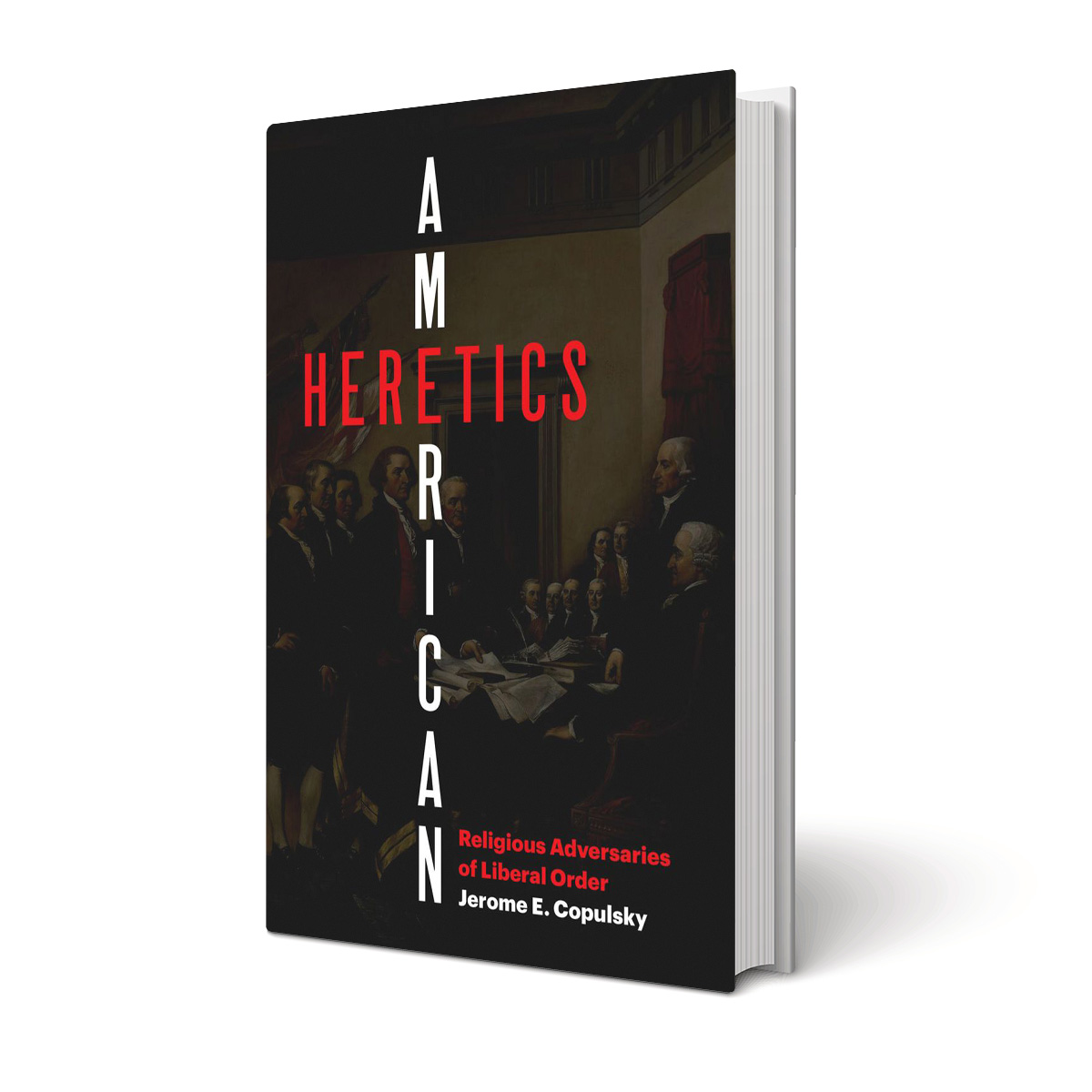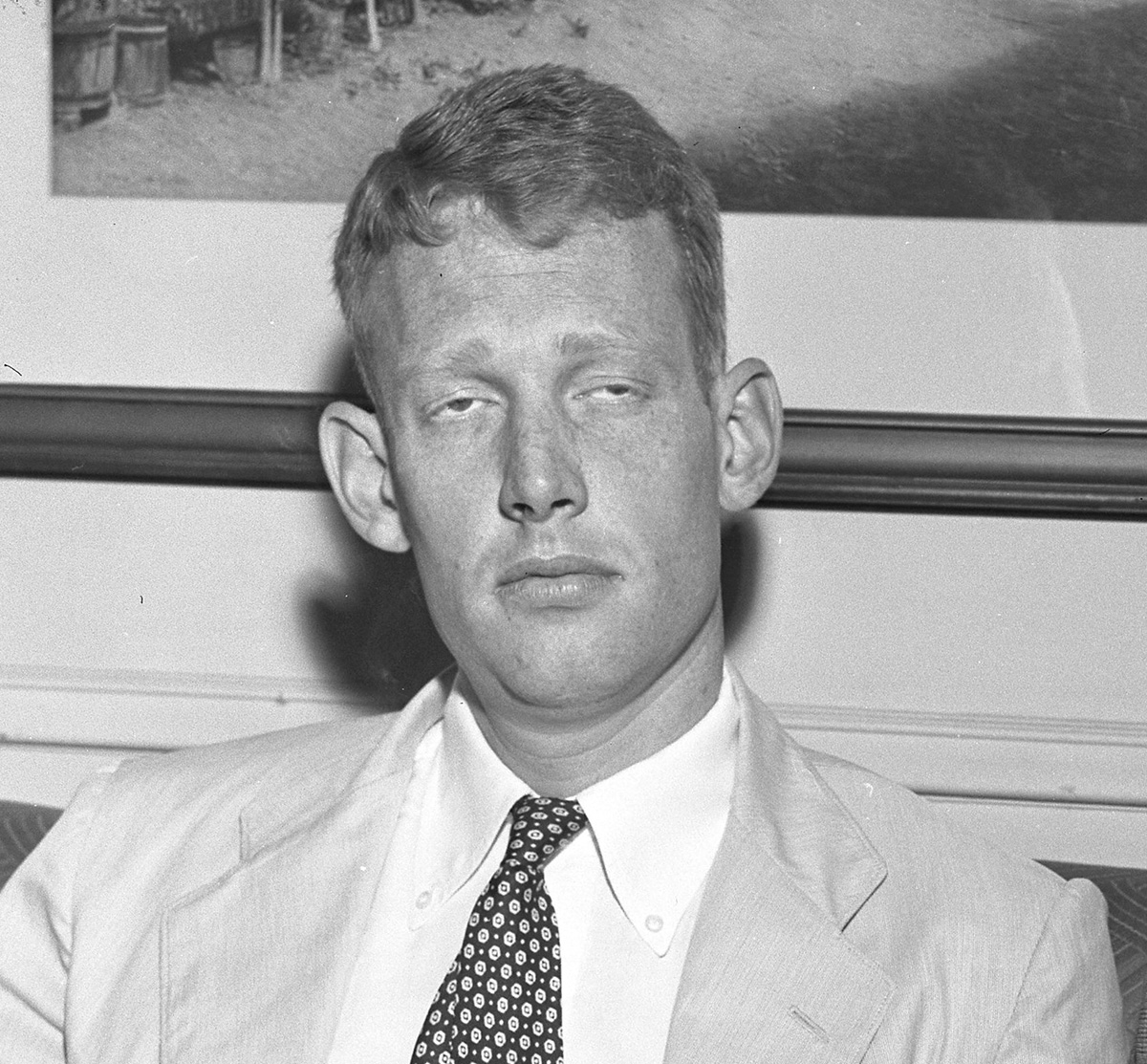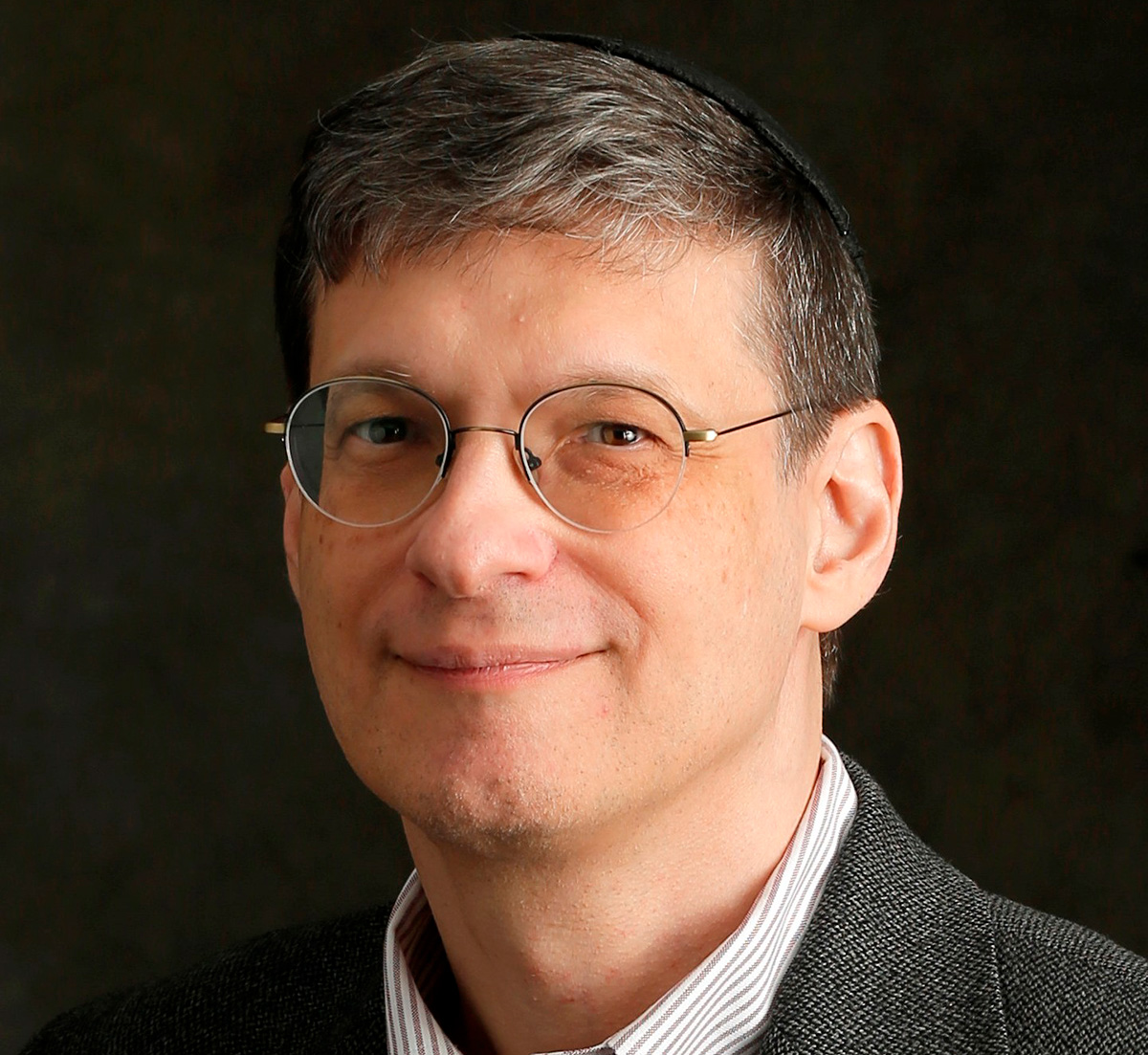If you are a federal employee who has moral objections to referring to coworkers by their preferred pronouns, I would argue that you have two options (besides, of course, compromising on those objections). You could offer a lowest-common-denominator argument in the hopes of appealing to the premises of a secular audience, leveraging biology and reason as you cite the immutability of chromosomes and the teleology of human gametes. Or you could argue that your religious beliefs prohibit you from using alternative pronouns. Those religious beliefs could possess a respected pedigree and be consistent with human logic or they could be more fantastic, such as, say, claiming that Zeus or Thor had appeared to you that very morning and declared to you that if you used alternative pronouns, you’d be struck dead by thunderbolts.
Is American history one long fight against would-be theocrats, ever-present threats to “religious neutrality”? If so, is it possible to preserve such a neutrality without squelching the rights of the very groups the Constitution is supposed to protect?

By Jerome E.Copulsky
(Yale, 2024)
Which of those options, do you think, would have a better chance of enjoying the protection of current American civil liberty law? As someone who has been in federal service, I can tell you which option I’d choose if I hoped to increase my chances of keeping my job: thunderbolts all the way, baby. Religious belief, defined as a protected category by the 1964 Civil Rights Act, means that it is a far surer bet to claim that faith, whether reasonably defensible or patently absurd, is the motivation for one’s objection to attempts at coercing American citizens into consuming the fruits of the sexual revolution.
Given this, it’s obvious that, even in an increasingly secular, post-Christian society such as the United States, religious belief and practice enjoy a very obvious preferential treatment. Why is that? Might it be because the framers of the U.S. Constitution, and their successors in both elected positions and the courts, have been guided by a deference, and even a preference, for religion, so much so that they were willing to give latitude to citizens’ beliefs not only when those beliefs transcend reason but even when they seem to be in blatant, even risible contradiction to it?
Jerome E. Copulsky, a research fellow at the Berkley Center for Religion, Peace, & World Affairs at Georgetown University, offers an alternative perspective in American Heretics: Religious Adversaries of Liberal Order. In Copulsky’s telling, American history is one defined by attempts by religious zealots on the right to overturn the secular, disestablished constitutional regime of the founders, a regime that had no real preference for religious belief. Though a fascinating historical study undoubtedly unfamiliar to many readers, American Heretics fails to interpret properly the framers’ conception of religion and, in its attempt to present a coherent narrative from the revolution to 2024, ham-fistedly collapses into a single whole a diverse group of religious conservatives who often share little more than superficial commonalities.
The 1777 New York State Constitution asserted that liberty of conscience ‘shall not be so construed, as to excuse acts of licentiousness.’
American Heretics is strongest in recounting a largely unknown history of religiously motivated resistance to the nation’s disestablished founding. “From the outset,” writes Copulsky in the introduction, “the American project was contested by religious voices who believed that democratic values were not an expression of Christian teaching but were rather false and dangerous; that religion should not be separated from the state but ought to guide political life; and that the protection, indeed celebration, of religious liberty was a violation of divine dictates.” Such persons sought to find a way to wed institutionalized Christian religion to the state.
The earliest examples of these “constitutional antagonists” were Loyalist churchmen, primarily of the Church of England, who voiced their opposition to the American Revolution as an Enlightenment-inspired novelty that would turn the world upside down, as Cornwallis’ British Army band allegedly played following their surrender at Yorktown. Anglican priest Myles Cooper railed against “those licentious Principles of the Times, which in their natural Tendency are subversive of Government,” while fellow clergyman Jonathan Boucher censured “the degeneracy of modern times.” Both Tories (who would during the war escape to Britain) based their Loyalist antipathies to the revolution on fears that Lockean social contract theory and its prioritization of liberty effectively repudiated classic Christian conceptions of polity that would in time promote sin and societal decay.
The Founding Fathers, it should be noted, were concerned with this as well. The 1777 New York State Constitution asserted that liberty of conscience “shall not be so construed, as to excuse acts of licentiousness.” George Washington’s 1783 “Circular Letter to the States” warned that “arbitrary power is most easily established on the ruins of liberty abused to licentiousness.” John Jay and James Monroe in public written statements in 1788 both expressed their concern with the negative effects of licentiousness. The leading figures of the founding, far from seeing liberty as the means by which men could free themselves from religious obligation, were cognizant of, and sought to counter, concerns that their nascent republic’s neutrality toward a single established church would encourage an areligious libertinism.
Copulsky attacks many prominent religious conservatives of the 20th and 21st centuries, but perhaps his most insightful critique is of the National Conservatism movement.
Yet Copulsky repeats tired claims of the framers “wisely erect[ing] a wall between church and state, protecting the institutions of civil government and the citizens’ sacred rights of conscience from fanatical or unscrupulous ecclesiastics.” That language, however, comes not from the Declaration (with its reference to “nature and nature’s God”), nor from the Bill of Rights (whose protection of religious liberty in the First Amendment is suggestive), but from personal correspondence between Jefferson and the Danbury Baptist Association in Connecticut, when he was president in 1802. Copulsky asserts that the Constitution “envisioned a federal government that was neutral, though not hostile, with respect to religion and that would govern a religious—and religiously diverse—people,” though even his own version of history undermines that claim.
During the Civil War and Reconstruction eras, for example, various Christian groups called for a “Christian Amendment” to the Constitution and for revising the Preamble to include explicitly Christian language. They ultimately failed in these efforts because a diversity of groups (among them Catholics, Jews, Unitarians, Seventh-Day Adventists, and atheists) opposed them. One of these, Unitarian minister Francis Ellingwood Abbot, called for the elimination of preferential treatment for religious persons and organizations. Abbot’s measures included, in Copulsky’s words:
The elimination of tax exemptions for churches and ecclesiastical property; employment of chaplains in Congress, legislatures, the military services, and public institutions; appropriation of public funds for “sectarian educational and charitable institutions”; religious services and Bible readings in public schools; proclamation of public religious festivals or fast days; judicial oaths; Sabbath laws; and “all laws looking to the enforcement of ‘Christian’ morality.”
Yet what does it say that all the above practices—many enshrined since well before the American founding—explicitly affirmed a Christian character to American life? Moreover, as Copulsky himself acknowledges, it took 50 years after the founding for the last state to disestablish fully. Indeed, many states retained religious tests for civic offices and prohibitions on ministers holding civic office into the 19th century, a political reality that existed until they were declared unconstitutional in Torcaso v. Watkins (1961) and McDaniel v. Paty (1978).

Although he never goes beyond a cursory discussion of the topic, Copulsky seems to appreciate that the founders were deeply influenced by natural law. That conception of natural law was rooted in Aristotelian, Scholastic, and post-Reformation sources, which articulated a moral framework underscored by an affirmation of the sovereignty of the divine. If anything, Lincoln’s emphasis on the equality principle—a natural law concept whose origin can be traced at least as far back as Aquinas in Summa Theologiae I–II, Q. 94—effectively rebuked the thinking of pro-slavery theologians such as James Henley Thornwell and Frederick A. Ross, who, like their Southern political counterpart John C. Calhoun, rejected the natural equality of man.
Copulsky attacks many prominent religious conservatives of the 20th and 21st centuries—such as L. Brent Bozell, R.J. Rushdoony, and Patrick Deneen—but perhaps his most insightful critique is of the National Conservatism movement promoted by political theorist Yoram Hazony. Many of the tenets of this movement, I would argue, are aligned with the vision of the founders, not only regarding the relationship of church and state but on immigration and foreign policy. But Copulsky is right to observe that Hazony’s “conception of religion and political theology is fundamentally Hebraic.” Presenting Israel as the “paradigmatic national state” enables Hazony to justify Israel’s treatment of its Arab minority population, which is complicated to say the least. Moreover, in his criticism of the principles of the Declaration as being too influenced by Lockean philosophy (i.e., natural law), Hazony’s movement has placed itself in the awkward position of affirming Hindu nationalism while, as far as I can tell, presenting either opposition to or silence on Arab nationalism, given the latter’s obvious tensions with Israel.
Natural law could be a help in navigating what constitutes legitimate and illegitimate nationalism (and, more to the theme of this book, state relations with religion), though Copulsky seems incapable of moving beyond a bland celebration of secular liberalism as the best means of ensuring a neutral, dispassionate state that will protect, but not favor, various religious traditions. Such a thesis is obviously superficial and naive, as my first example indicates: Many politicians and pundits have argued that America should end its history of preferential treatment for religion (and, specifically, Judeo-Christian or biblical religion), both to ensure legal protections for other perceived marginalized groups (women, gays, transgenders) and to exact a price on those who resist the effects of the sexual revolution.

Although the left claims that our secular regime will always be a good-faith arbiter, it’s obvious it has no qualms targeting religious persons who dissent from the establishment’s opinions regarding abortion and sexuality. The Democratic Party’s current candidate for president publicly attacked three different judicial nominees over their affiliation with the Knights of Columbus, a Catholic fraternal organization that donated almost $200 million to charities and offered 49 million hours of volunteer services in 2023. “If it is to endure, America’s liberal democracy will have to be sustained in the absence of a moral consensus or clear-cut spiritual foundation,” claims Copulsky. That opinion, in light of increasing pressure on religious organizations by a supposedly neutral and disinterested establishment, seems both delusional and dangerous.








